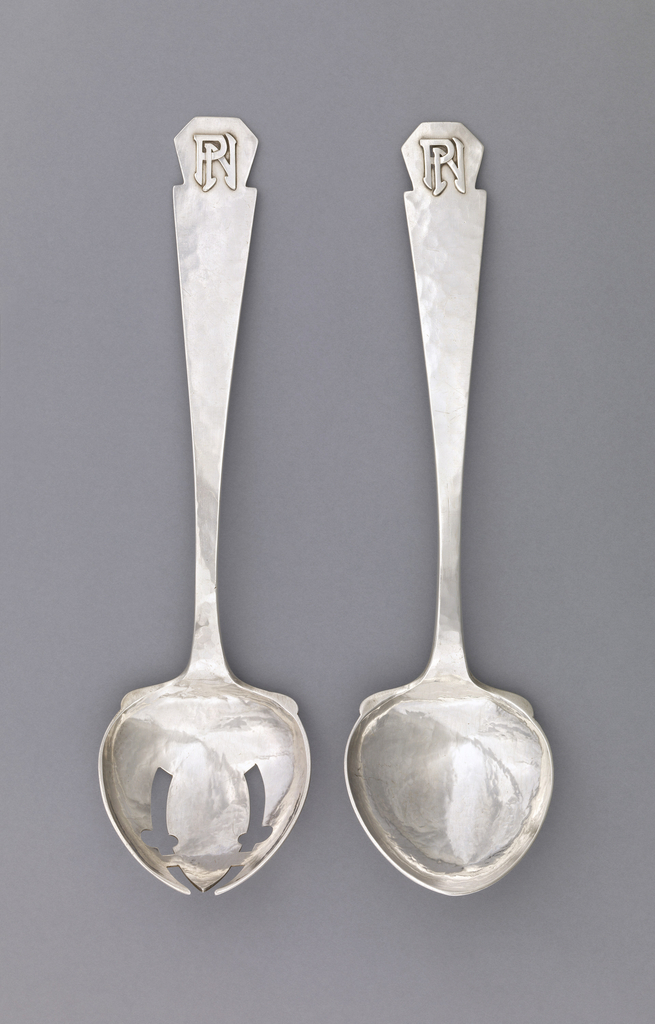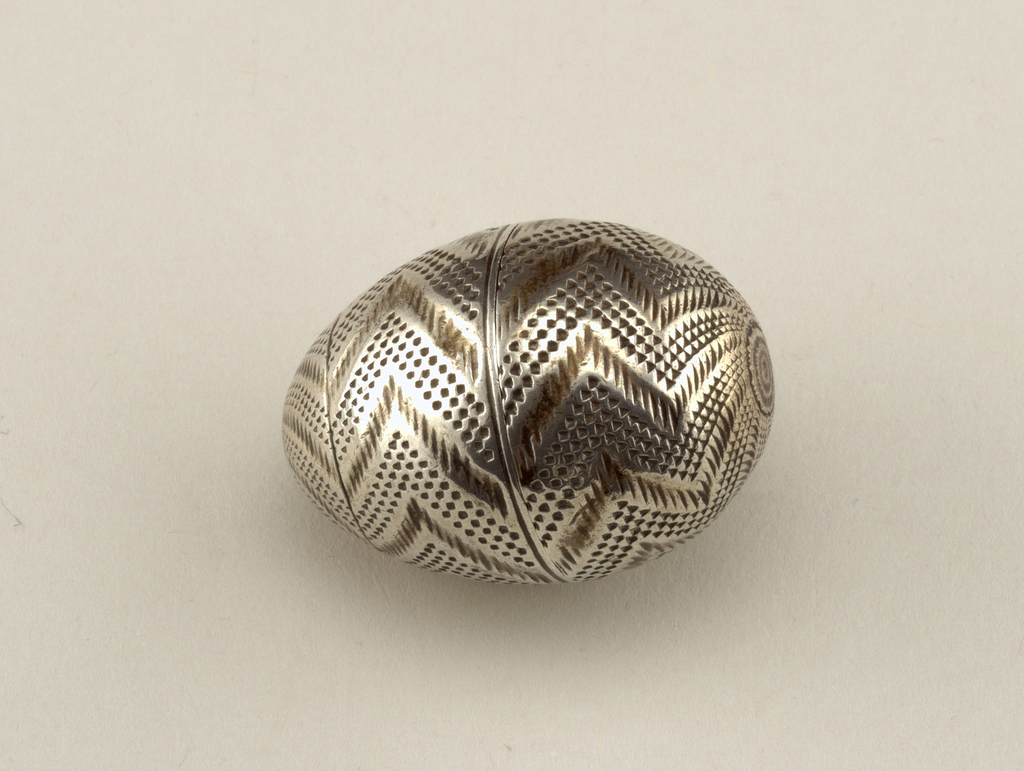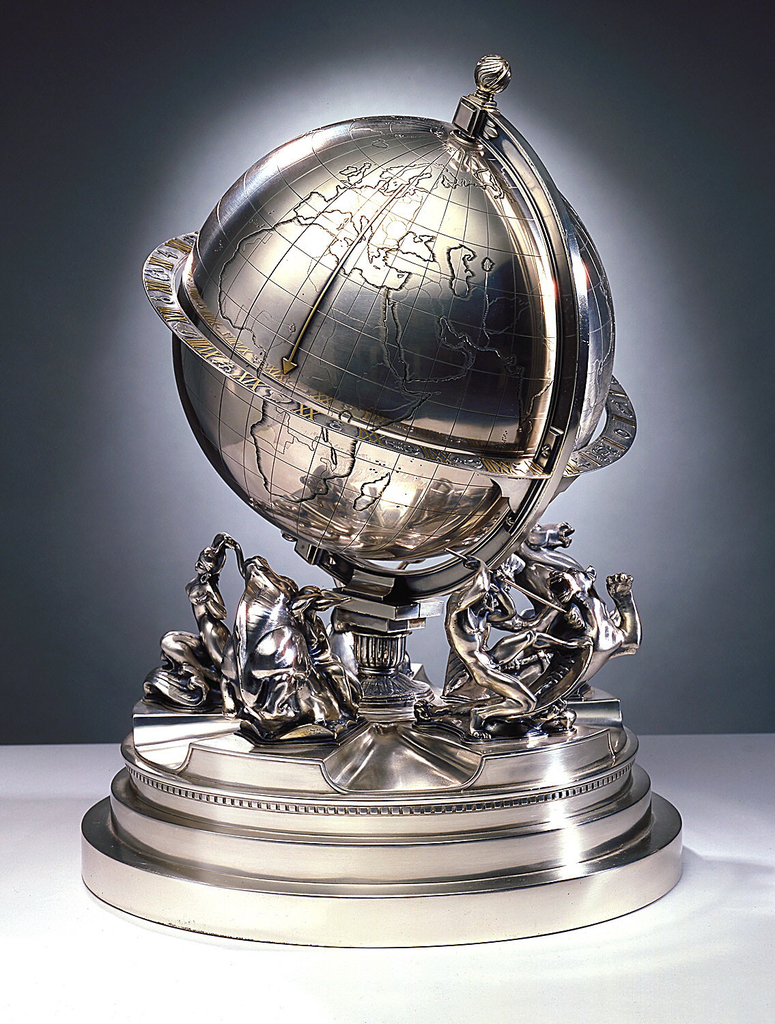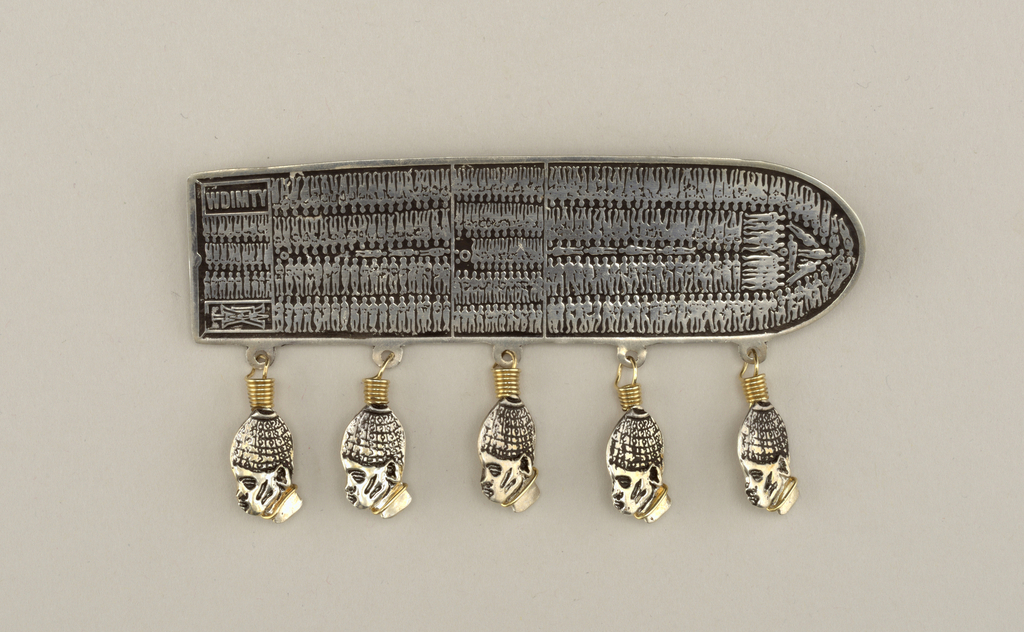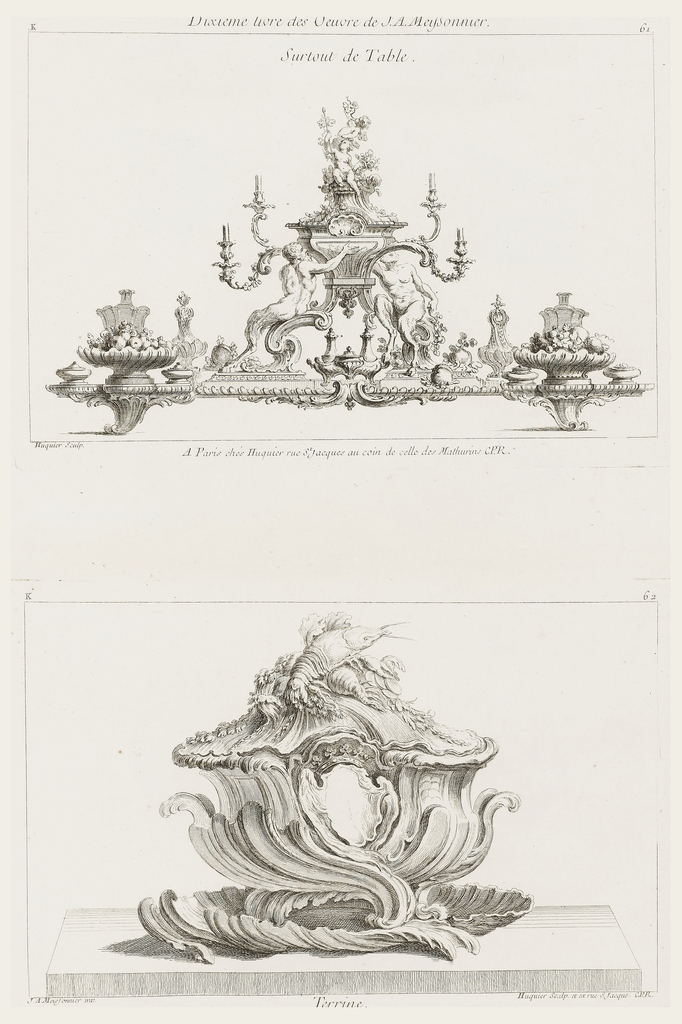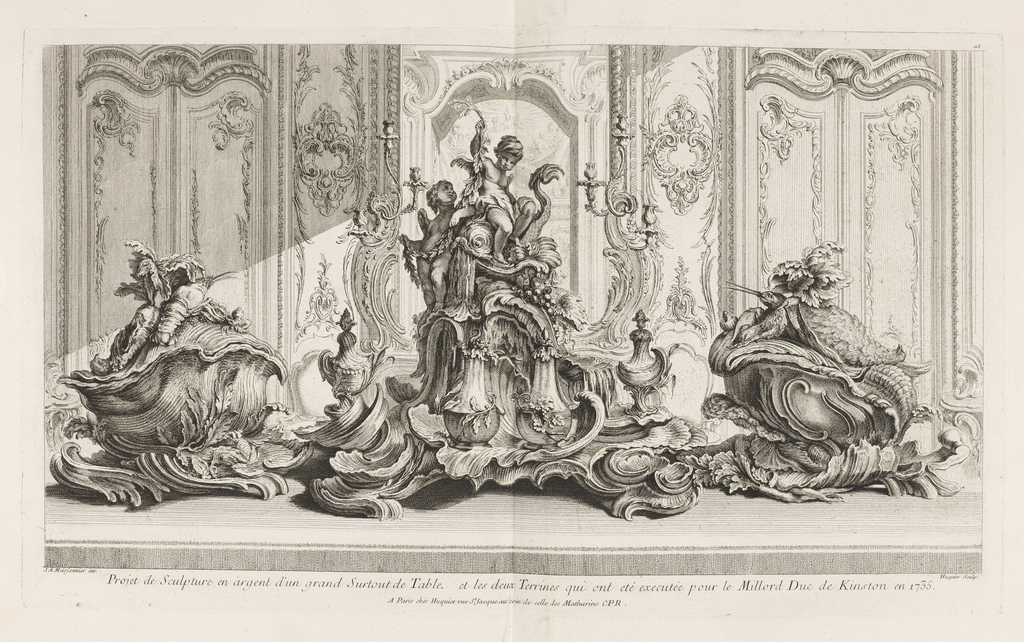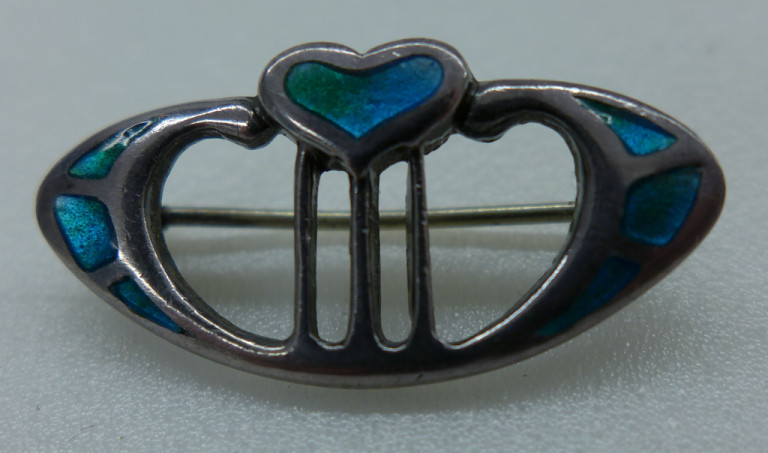Founded by Clara Barck Welles in 1900, the Kalo Shop was one of the most successful workshops of the Arts and Crafts movement. The name “Kalo” derives from the Greek word for beauty and the motto of the Kalo Shop was “Beautiful, Useful, and Enduring.”[1] The output of the Kalo Shop lived up to this...
Now on view in The Jazz Age: American Style in the 1920s, this vase by Dagobert Peche is an explosion of movement and life.
Fainting was a common occurrence among nineteenth-century women who tight-laced their corsets, thus restricting both deep breathing and the sufficient consumption of food. Victorian publications warned that fainting could also be induced by sudden and violent emotions, powerful odors and “derangement of the bowels” (a wonderful phrase). Recovery was accelerated by lying horizontally while sprinkling...
This week’s entries are dedicated to objects featured in the exhibition Thom Browne Selects, currently on view at Cooper Hewitt through October 23, 2016. Today, it is not unfamiliar to feel a constant oscillation between the eastern and western ideas of culture with the world’s expedited methods of communication, but this was occurring at a...
This table clock, designed by Swedish goldsmith, Baron Erik Fleming, truly captures the spirit and wonder of travel in its depiction of a globe. Spinning on its axis hour by hour, this clock lets the viewer explore the many vast places in the world, from the massive continents of the Americas, to the tiny islands...
Born in the Bronx, Phyllis Bowdwin is an activist, writer, educator, mixed-media artist, and designer. Inspired by her African ancestry, Bowdwin made this brooch that depicts in diagrammatic form the hull of a slave ship and the arrangement of its tightly packed human cargo during the Middle Passage. In this version, five heads of African...
The famous silver tureens that the eighteenth–century silversmith Juste-Aurèle Meissonnier designed for England’s Duke of Kingston may be the most celebrated objects of his career. They were etched in a double-page spread in Oeuvre de Juste-Aurele Meissonnier published by Gabriel Huquier around 1748. This volume is one of the rare books acquired by the Cooper...
Eighteenth-century meal services were elaborate affairs, as exemplified in this print showing tureens and a table center piece designed by Juste-Aurèle Meissonnier for Evelyn Pierrepont, Duke of Kingston-upon-Hull in the 1730s. Meissonnier worked for Louis XV, becoming orfèvre du roi (goldsmith to the king) in 1724. This engraving is plate 115 in folio 72 of...
In summer, when weddings are frequent, the thought of objects given in affection or love, makes a visit to the jewelry collection seem appropriate. This heart-form brooch is one of a group of jewelry by Charles Horner (English, 1821-1896) given to the Museum in December. Horner (English, 1821-1896) was an actual silversmith, watchmaker and enamellist...
